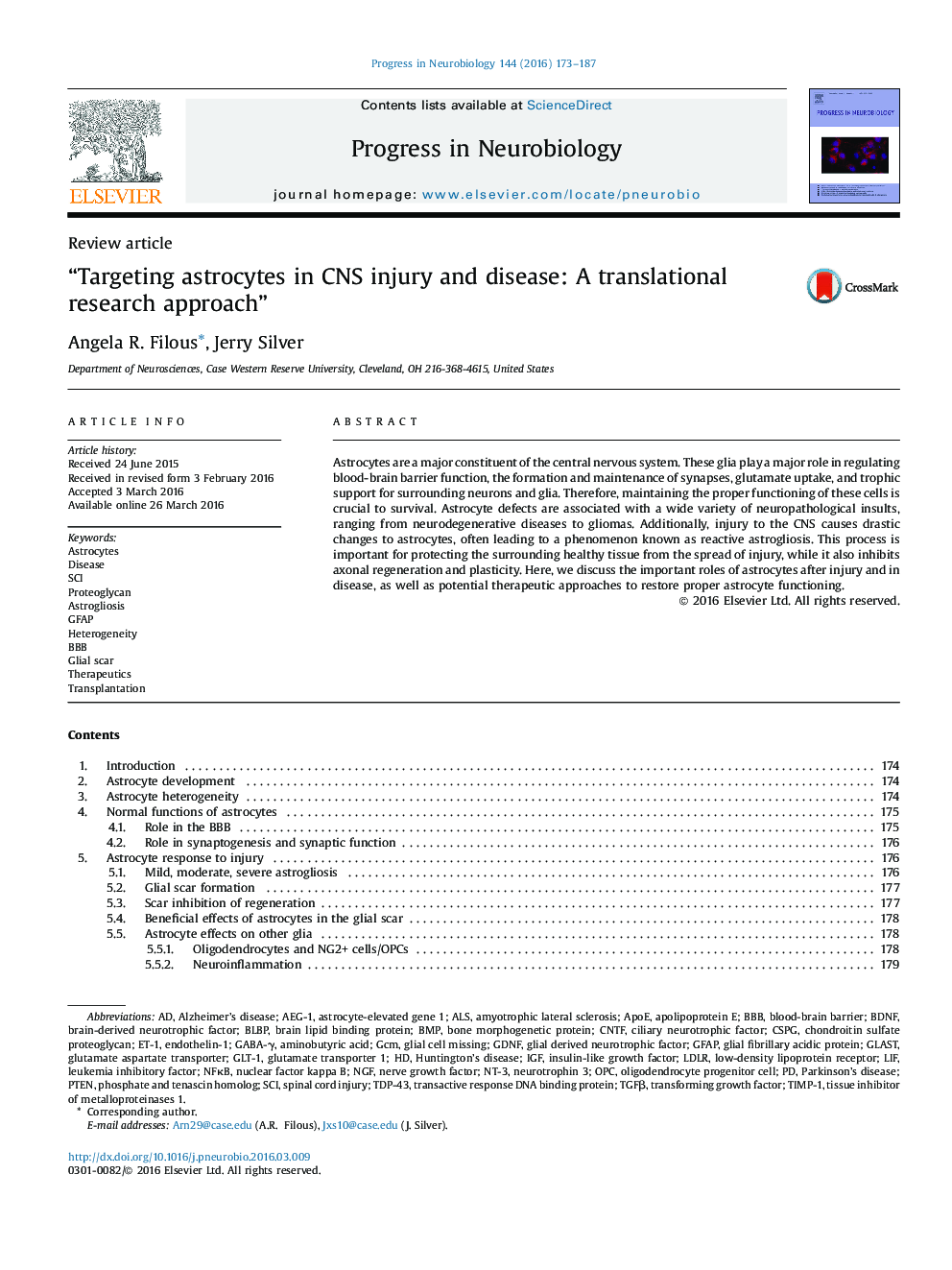| Article ID | Journal | Published Year | Pages | File Type |
|---|---|---|---|---|
| 4353217 | Progress in Neurobiology | 2016 | 15 Pages |
•Astrocytes function in blood-brain barrier formation and synaptogenesis under normal physiological conditions.•Astrocytes undergo varying degrees of astrogliosis in response to the severity of injury that has occurred.•Astrocytes in the glial scar have both beneficial and harmful effects on regeneration.•Astrocytes play a significant role in a variety of diseases, including Alzheimer’s disease, Amytrophic lateral sclerosis, Huntington’s disease, Parkinson’s disease, and gliomas.•Astrocytes can be targeted to repair the CNS after injury.
Astrocytes are a major constituent of the central nervous system. These glia play a major role in regulating blood-brain barrier function, the formation and maintenance of synapses, glutamate uptake, and trophic support for surrounding neurons and glia. Therefore, maintaining the proper functioning of these cells is crucial to survival. Astrocyte defects are associated with a wide variety of neuropathological insults, ranging from neurodegenerative diseases to gliomas. Additionally, injury to the CNS causes drastic changes to astrocytes, often leading to a phenomenon known as reactive astrogliosis. This process is important for protecting the surrounding healthy tissue from the spread of injury, while it also inhibits axonal regeneration and plasticity. Here, we discuss the important roles of astrocytes after injury and in disease, as well as potential therapeutic approaches to restore proper astrocyte functioning.
